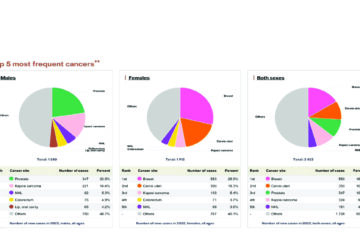Hertta-Maria Amutenja
The ministry of health and social services says it will introduce track-and-trace barcoding to monitor medicines from central storage to patients.
This will be carried out under one secure facility, with long-term pharmaceutical contracts finalised through the Central Procurement Board of Namibia (CPBN) after legal disputes delayed the process for four years.
This comes as the ministry on Monday admitted that drug stock-outs continue despite an N$1.8 billion budget for pharmaceuticals and clinical supplies in the 2025/26 financial year.
“We are now moving away from a reactive approach to a proactive one, where we anticipate demand and secure long-term contracts with manufacturers,” said health minister Dr Esperance Luvindao at a press briefing in Windhoek.
She said shortages remain a major concern.
“For the past two financial years, the service level at the Central Medical Stores has been less than 57%, falling short of our required target of 80%,” she said.
She explained that the shortfall comes from the lack of long-term procurement contracts, global supply chain disruptions, rising demand for medicines, changing disease patterns, and limited storage space.
“These challenges have had a tangible impact on the care we can provide to our patients,” she said.
“Imagine a diabetic patient who relies on a consistent supply of insulin to manage their condition, or a mother unable to access prenatal vitamins for a healthy pregnancy. These are the realities that arise when our supply chain falters.”
Luvindao confirmed that the absence of long-term contracts has placed the ministry in a “perpetual cycle” of emergency procurement.
“While necessary in urgent situations, emergency procurement has proven to be a very expensive exercise, particularly when procuring from suppliers rather than directly from manufacturers,” she said.
Earlier this year, the ministry faced criticism over the emergency procurement of malaria medicine when member of parliament Job Amupanda alleged it paid N$1,500 per pack for 300 packs, three times the usual price.
The ministry responded that only one supplier, West Pharmaceuticals, could deliver within a week, while other companies quoted similar or higher prices with longer lead times.
Luvindao admitted that inefficiencies in the supply chain have worsened the problem. She listed a bureaucratic procurement system, lack of accountability, poor storage facilities, weak inventory management, and inadequate security.
“The fragmentation of storage across multiple locations in Windhoek and beyond has created serious inefficiencies and exposed the supply chain to increased risk of losses and vulnerabilities,” she said.
Luvindao assured the public that stock levels would be restored in the coming weeks.
The ministry’s executive director, Penda Ithindi, earlier said legal challenges and slow tender processes at the CPBN had forced the ministry to rely on emergency, direct and restricted procurement.
“The ministry is an entity that deals with emergency situations in the country,” Ithindi told the Observer in July.
He said the measures were necessary to prevent service interruptions.
The auditor general’s 2022/23 report showed that the ministry spent N$54.8 million through these methods, with N$19.2 million on emergency procurement and N$35.6 million on direct procurement, which did not fully comply with the Public Procurement Act of 2015.
One delay involved a legal dispute over a major antiretroviral tender. Local company Africure Pharmaceuticals took the CPBN and others to court, seeking to stop contracts being signed with competitors until its case was resolved.
Africure had bid to supply ARVs worth N$342.7 million but was awarded a contract for only N$722 832. The company argued it had invested N$89 million in a local plant and employed 38 Namibians, while the CPBN said Africure was not a manufacturer but an importer and packer.
The board warned that the dispute risked delaying ARV supply to patients.




